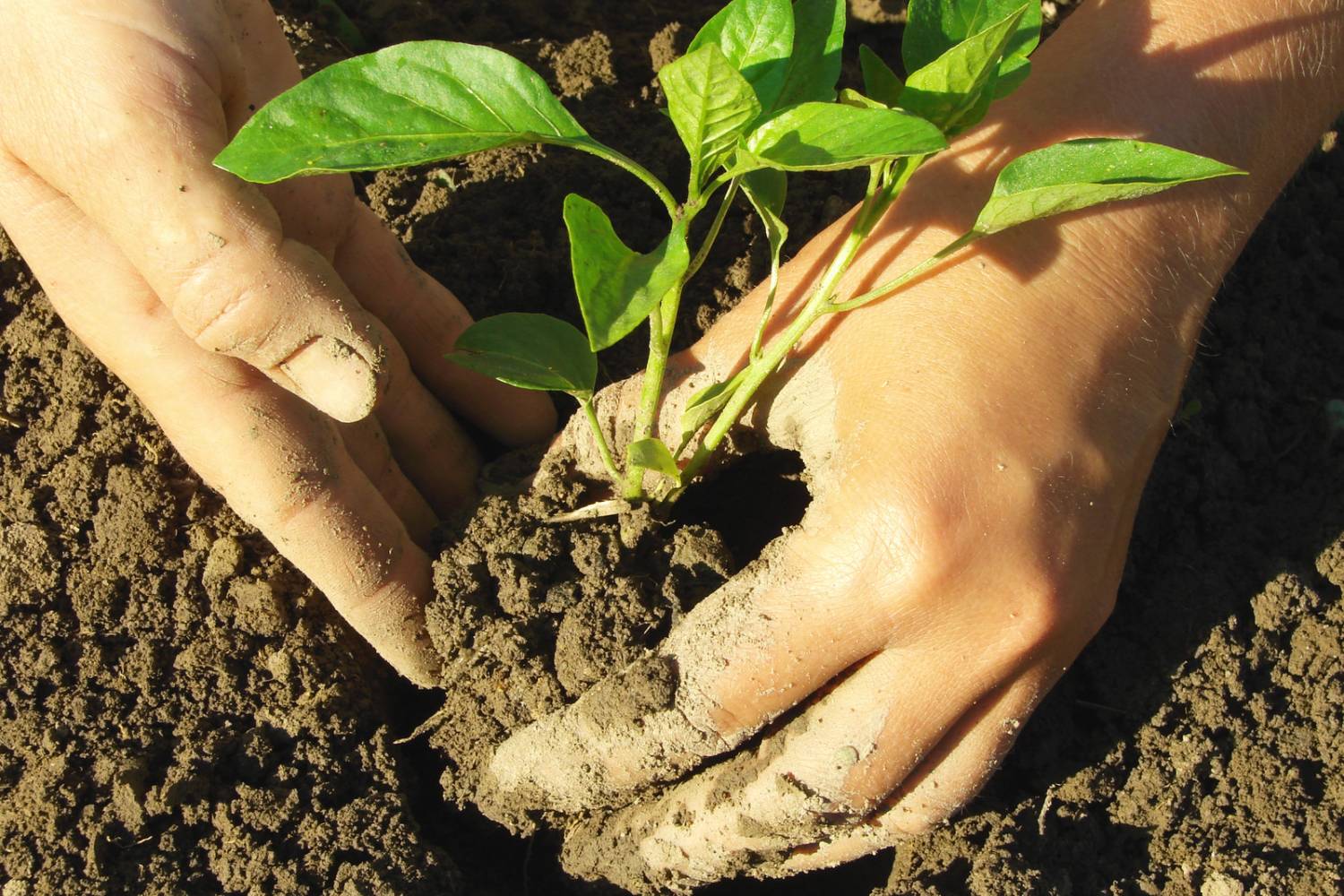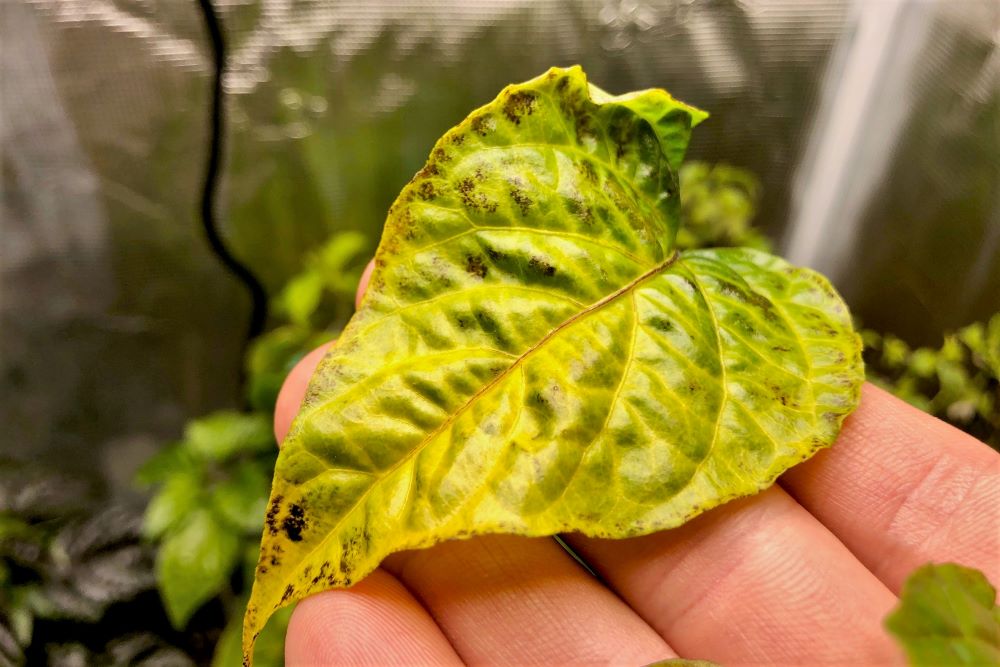Selecting the Best Fertilizers for Peppers: Professional Recommendations
Selecting the Best Fertilizers for Peppers: Professional Recommendations
Blog Article
The Perks and Techniques of Utilizing Fertilizers for Peppers in Your Yard
When it involves cultivating an effective pepper garden, the function of fertilizers can not be neglected. The benefits of making use of fertilizers for peppers extend beyond mere plant growth; they play an essential role in enhancing fruit manufacturing and general plant health. Nevertheless, the world of plant foods can be overwhelming, with various alternatives available, each claiming to be the best. Recognizing the specific needs of pepper plants and choosing the appropriate plant food can be a game-changer in your gardening journey. By discovering the strategies of appropriate plant food application and establishing a routine tailored to your pepper plants, you can open their complete potential. Join us as we discover the ins and outs of feeding peppers efficiently and successfully, guaranteeing an abundant harvest and flourishing yard.
Relevance of Plant Foods for Peppers
Fertilizers play a crucial function in guaranteeing the optimal development and productivity of pepper plants in a garden setup. Peppers are hefty feeders, requiring a well balanced supply of essential nutrients to grow and create abundant harvests. The primary nutrients needed by pepper plants are phosphorus, potassium, and nitrogen. Nitrogen help in leafy growth and overall plant vitality, phosphorus supports root development and blooming, while potassium adds to fruit growth and condition resistance.
When peppers do not have these essential nutrients, they may display stunted development, yellowing leaves, lowered flowering, and inadequate fruit set. By giving the best fertilizers in the correct quantities, garden enthusiasts can deal with these shortages and promote healthy plant development. In addition, plant foods help pepper plants endure ecological stress factors such as severe temperature levels, parasites, and conditions, allowing them to concentrate their power on development and fruit production.
Choosing the appropriate fertilizer formula, whether natural or artificial, and complying with appropriate application techniques are key consider maximizing the advantages of fertilizers for pepper plants in a garden setting. Regular dirt screening can likewise assist identify any nutrient discrepancies and overview garden enthusiasts in creating a tailored fertilizing plan customized to the specific needs of their pepper plants.
Picking the Right Plant Food
Picking the ideal plant food for pepper plants is essential for ensuring their optimum development and performance in a yard setting. When selecting a plant food for peppers, it is essential to take into consideration the particular nutrient demands of these plants. Peppers are hefty feeders, specifically requiring ample quantities of phosphorus, potassium, and nitrogen. Therefore, a plant food with a well balanced NPK proportion, such as 10-10-10 or 20-20-20, can be suitable for peppers.

Prior to applying any kind of fertilizer, it is important to perform a soil test to determine the current nutrient levels in the soil. This information can assist you in selecting the appropriate fertilizer and developing a personalized fertilizing plan for your pepper plants, advertising healthy development and plentiful returns.
Application Methods for Optimum Results
To achieve ideal growth and efficiency for pepper plants in your garden, what secret application methods can be used for optimum outcomes? When using fertilizers to pepper plants, it is vital to comply with specific strategies to make sure that the nutrients are successfully soaked up and made use of by the plants. One essential strategy is to use the fertilizer uniformly around the base of find more info the plants, making sure that it is not concentrated in one location. This helps to stop root burn and enables for uniform nutrient uptake.
One more essential application technique is to sprinkle the plants extensively after using the fertilizer. This aids to dissolve the nutrients and lug them down to the origins where they are required for growth. Additionally, it is recommended to use fertilizers throughout the cooler components of the day, such as morning or late night, to stop evaporation and maximize absorption.
Moreover, regularly keeping track of the plants for any indicators of nutrient deficiency or extra can help in adjusting the plant food application as necessary. By employing these vital application techniques, you can make certain that your pepper plants get the essential nutrients for healthy growth and bountiful returns.
Fertilizer Arrange for Pepper Plant Kingdoms
When should pepper plants be fed to make certain optimal development and efficiency in your garden? Establishing a well-structured fertilizer timetable is important for the healthy and balanced growth of pepper plants - best fertilizers for peppers. Peppers have particular nutritional demands that vary throughout look these up their growth phases

As the pepper plants start blooming, button to a phosphorus-heavy plant food to advertise robust flower and fruit formation. Potassium-rich plant foods should be introduced throughout the fruiting stage to improve fruit top quality and yield.
Throughout the growing season, keep an eye on the plants for any type of indications of nutrient shortages and readjust the plant food routine as necessary. Bear in mind to water the plants deeply after each fertilization to assist in nutrient absorption. By complying with a well-tailored and constant plant food routine, you can make sure strenuous growth and plentiful harvests from your pepper plants.

Tips for Feeding Peppers Successfully
One vital tip is to carry out a dirt test prior to applying any type of fertilizers to establish the existing nutrient levels. It is recommended to use a balanced plant food with a proportion such as 10-10-10 or 20-20-20 to make certain peppers get a mix of essential nutrients. Applying fertilizers in the appropriate quantity and at the right time is essential.
Verdict
Finally, fertilizers play a crucial duty in the development and advancement of pepper plants in your yard. By selecting the proper fertilizer and using it appropriately, you can ensure your peppers receive the required nutrients for optimal development. best fertilizers for peppers. Following a consistent fertilizer routine and implementing efficient methods will help optimize the benefits of plant foods for your pepper plants, resulting in productive and healthy crops
The advantages of utilizing fertilizers for peppers extend beyond mere plant growth; they play an important role in enhancing fruit manufacturing and overall plant wellness.Fertilizers play a vital role in ensuring the optimum development and productivity of pepper plants in a yard setup. When choosing a fertilizer for peppers, it is vital to consider the specific Clicking Here nutrient needs of these plants. When using fertilizers to pepper plants, it is important to adhere to particular methods to ensure that the nutrients are effectively soaked up and utilized by the plants. Adhering to a consistent fertilizer routine and applying reliable techniques will certainly help make best use of the advantages of fertilizers for your pepper plants, resulting in healthy and balanced and efficient plants.
Report this page